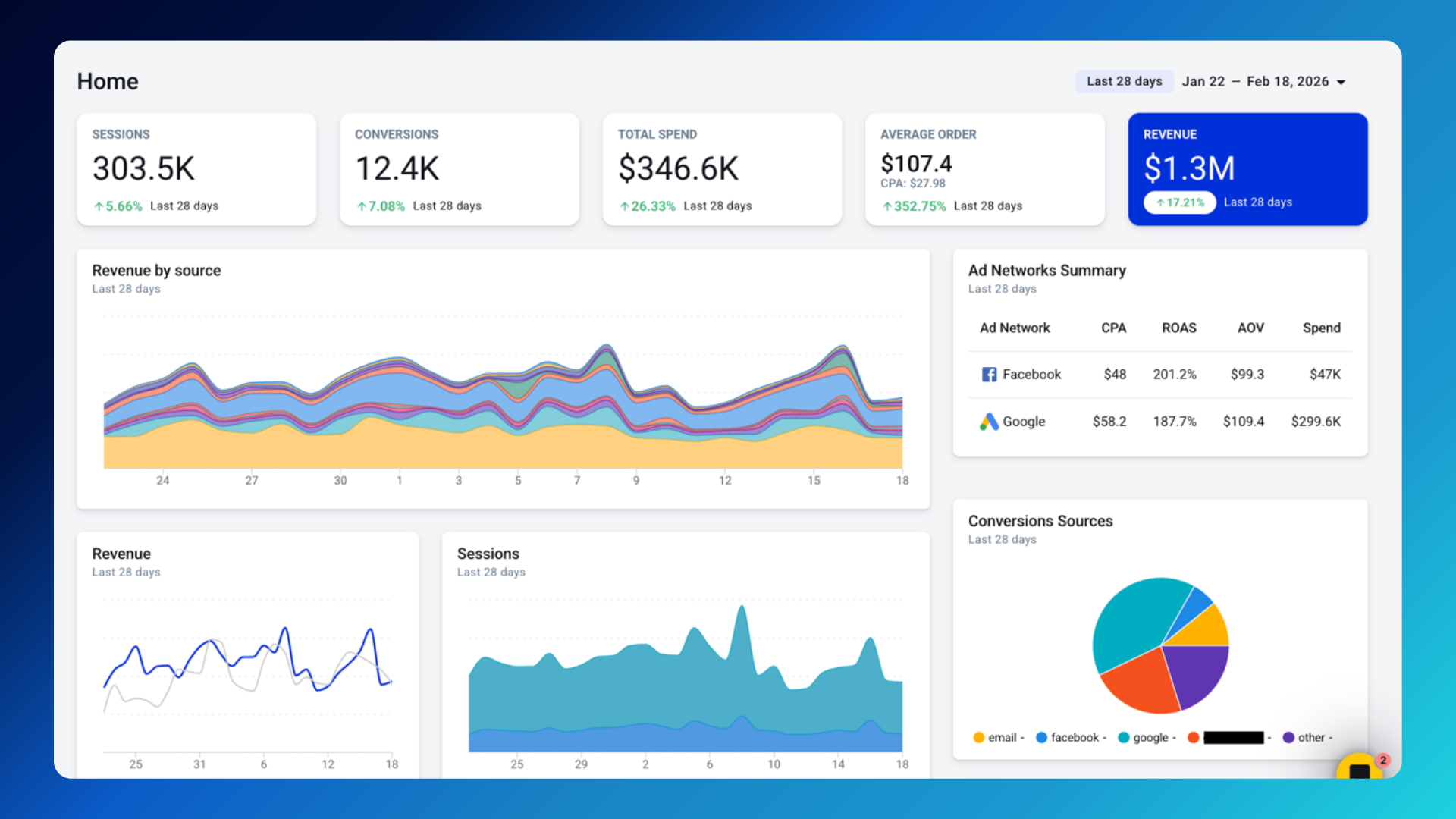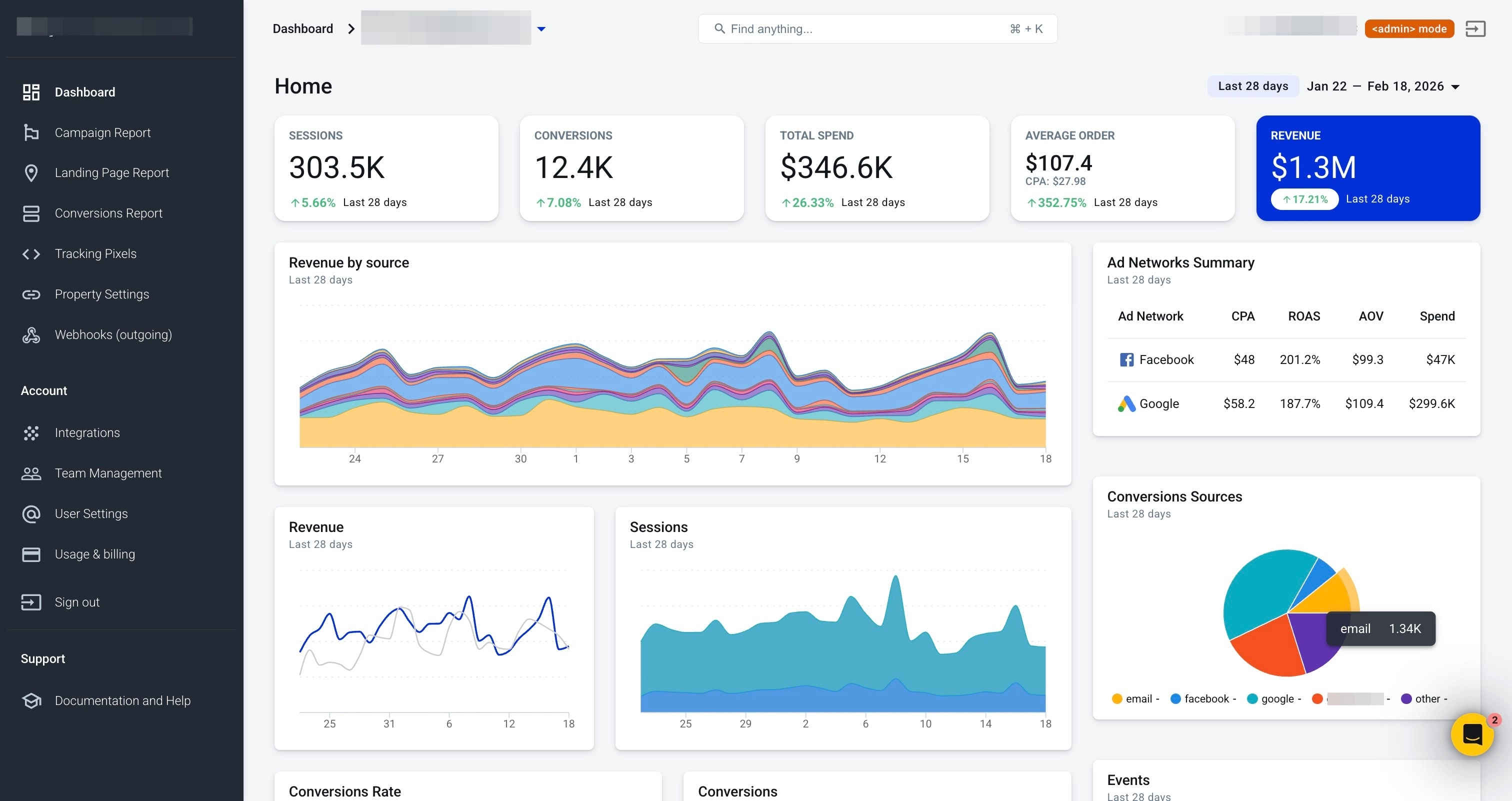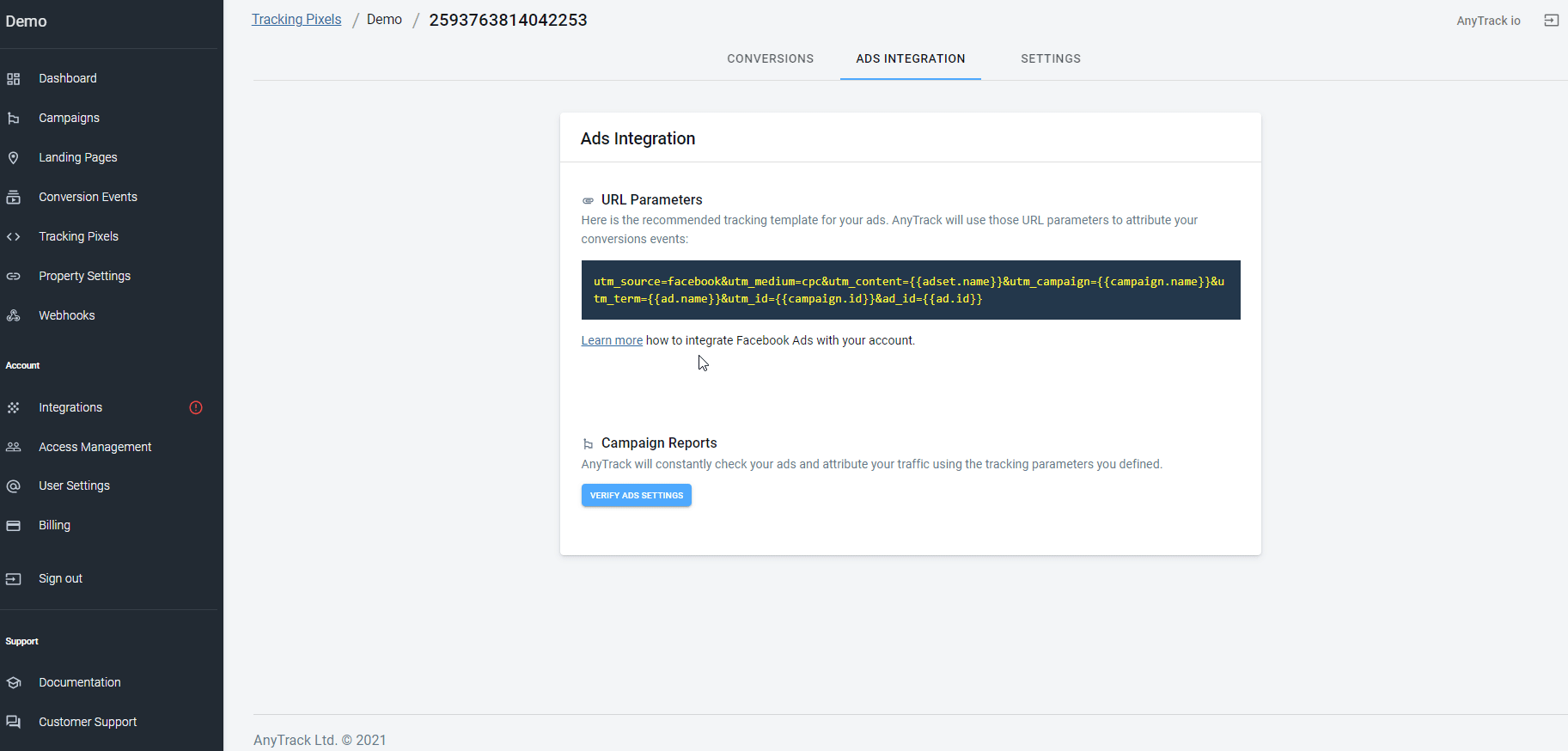Dashboard
Monitor key metrics on the AnyTrack Dashboard: total sessions, engagements, conversions, and revenue. Compare performance across time periods. View conversion and engagement sources to optimize your marketing strategy.
The AnyTrack Dashboard gives you a real-time overview of tracking performance across all your properties. All dashboard features are available on every plan.

Key Metrics (Past 30 Days)
Total Sessions: The number of visits to your site. This counts every visitor entry, whether new or returning. Multiple page views within one session count as a single session.
Total Engagements: Events with no monetary value, like Add to Cart, Lead, or Initiate Checkout. A purchase with zero value also counts as an engagement.
Total Conversions: All events with a value greater than zero.
Total Revenue: Total revenue from tracked conversions.
Comparing Time Ranges
All metrics include a comparison with the previous period. Choose a week and it compares to the previous week. Choose a month and it compares to the previous month.
Conversion Rate: Calculated as Conversions / Sessions. For example, 10 purchases from 1,000 sessions equals 0.01 conversion rate.
Engagement Rate: Calculated as Engagements / Sessions.
Conversions and Engagement Sources
View which sources drive the most conversions or engagements. Hover over a source in the pie chart to see its name and percentage.

Error Metrics
Unknown Links: Relevant for affiliate websites. Links that direct users away from your website that AnyTrack does not recognize are listed as unknown links. Learn more about tracked elements and link discovery.
Payload Errors: The number of errors in your Integrations section.
Understanding Unknown Sources
The pie chart shows conversion and engagement sources. You'll see sources like "Meta Ads", "Google", and "Bing", plus custom sources from your UTM parameters.
An unknown source is a session with no UTM source parameter or referral header indicating where the visitor came from. This occurs when users:
- Enter your website directly via the browser address bar
- Click a link with the
rel="noreferrer"attribute
Without a UTM source or referral header, AnyTrack cannot detect the traffic source, so it displays as "unknown".
Best Practices for Traffic Attribution
Always use UTM Parameters when creating campaign links to your website. This gives you a complete picture of traffic sources, helps build custom audiences, and optimizes ad spend.
Use the URL tracking templates provided for integrated ad platforms (Google Ads, Meta Ads, Microsoft Ads, Taboola, Outbrain).

For ad platforms and systems not integrated with AnyTrack, use a UTM URL builder to generate parameters.
AnyTrack automatically captures UTM parameters and uses them to attribute conversions, report performance, and send data to your analytics providers.
NoteOnly add UTM parameters to external links pointing to your website (ads, blogs, social media, etc.). Never add UTM parameters to internal links, as this will distort your tracking and attribution data.
Frequently Asked Questions
FAQ was last reviewed on 2026-03-04
Updated about 19 hours ago
